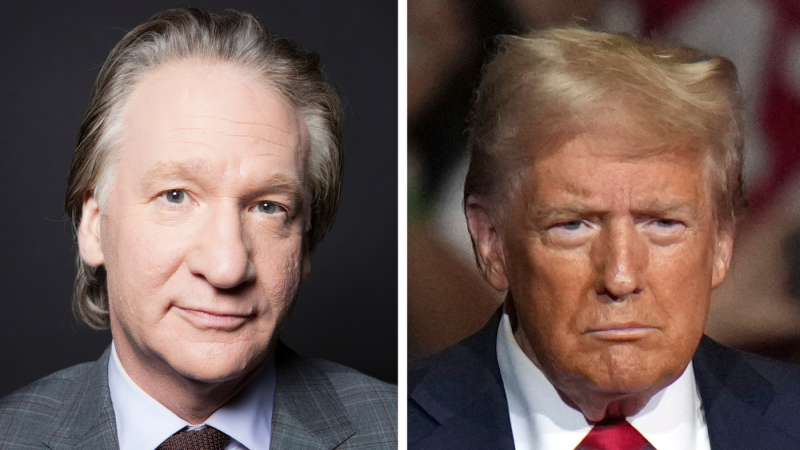
A Comedian’s Take on Political Symbolism and Constitutional Limits
On a recent episode of his HBO show Real Time with Bill Maher, the comedian offered a sharp critique of former President Donald Trump, particularly focusing on an unusual moment during his trip to Asia. The segment highlighted a peculiar gesture that took place when Trump was in South Korea, where he received a golden crown from the country's leader, Lee Jae Myung.
Maher described the incident with a mix of humor and skepticism, noting that Trump was visibly moved by the gift. “He was in South Korea and the president there gave him a golden crown and Trump was very moved by it,” Maher said. He then mimicked Trump’s response, adding, “I know exactly where I’m going to keep it, on my head.” This quip underscored the absurdity of the situation, as well as the symbolic weight that such gestures can carry in international diplomacy.
The golden crown, while seemingly ceremonial, sparked a broader conversation about the nature of political symbolism and how leaders interpret such gestures. For many, it was a curious moment that reflected the unique dynamics of Trump’s presidency, where even small interactions could be amplified into significant cultural or political commentary.
In addition to the crown, Maher also touched on another contentious topic: Trump’s potential interest in running for a third term. Despite the 22nd Amendment, which limits U.S. presidents to two terms, Trump has repeatedly hinted at the possibility of seeking re-election. Maher paraphrased some of Trump’s comments on the subject, highlighting the former president’s ambiguous stance. “Based on what I read, I guess it’s not allowed, but we’ll see what happens,” Maher quoted, emphasizing the uncertainty surrounding Trump’s intentions.
This discussion brought attention to the constitutional framework that governs the U.S. presidency. The 22nd Amendment, ratified in 1951, was designed to prevent any individual from holding the office for more than two terms. It was a direct response to Franklin D. Roosevelt’s four-term presidency, which raised concerns about the concentration of power. However, the amendment does not explicitly address the possibility of a third term under certain circumstances, leaving room for debate and interpretation.
Maher’s remarks were part of a larger conversation about the role of humor in political discourse. As a comedian, he often uses satire to highlight the contradictions and absurdities of public figures. In this case, his commentary served as both entertainment and a critical examination of the political landscape. By mocking the golden crown and questioning Trump’s ambitions, Maher encouraged viewers to think more deeply about the implications of such actions.
The segment also reflected the ongoing fascination with Trump’s political career, even after his time in the White House. His statements and actions continue to generate media coverage and public debate, illustrating the lasting impact of his presidency. Whether through symbolic gestures or policy discussions, Trump remains a central figure in American politics, and his influence is still felt across various platforms.
In conclusion, Maher’s take on the golden crown and the potential for a third term highlights the complex interplay between symbolism, politics, and constitutional law. It serves as a reminder that even seemingly minor moments can spark significant conversations about leadership, power, and the rules that govern them.

Post a Comment